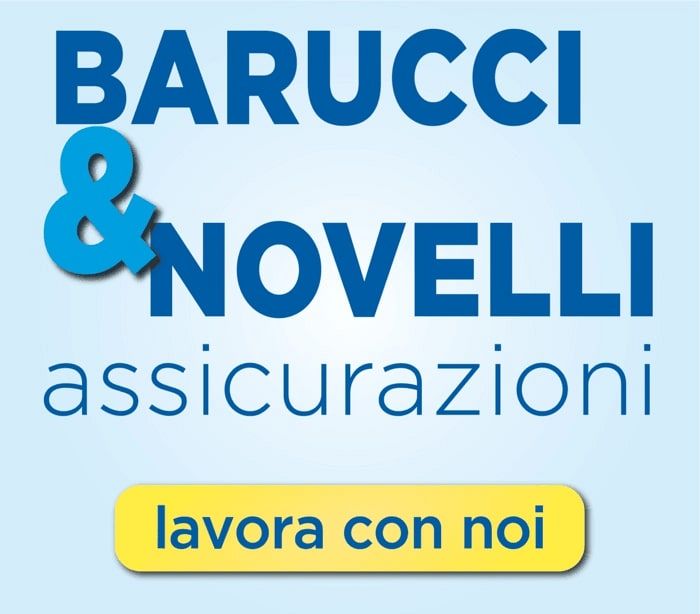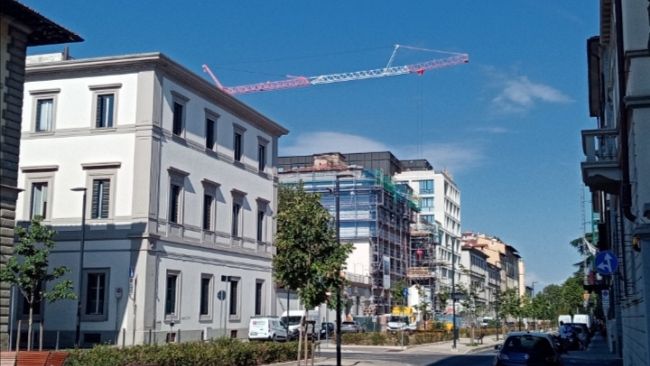Riceviamo dal dottor Paolo Manzelli, direttore del Laboratorio di ricerca educativa dell'Università di Firenze, e volentieri pubblichiamno:
As soon as e-commerce evolves with rapidity and extension, it is understood that such form of commercial development is not so simple, as normally the mass media communication diffuses to the people all over the world , giving an easy information about the idea that the barrier of entry into the electronic market need only for a click in internet.
In fact the focusing element, that fundamentally distinguishes this form of "e.commerce" in the the "net economy "scenario, it doesn't consist in to add a simple "e" to the traditional commerce.
Really the electronic commerce is a complex phenomenon, that must develop only when it operates on a dimensions of commercial extension to reach elevated economies of scale.
In spite of the simplification, the "e.commerce" powerfully changes the classical inter-mediation of the local market, to flourish in the global market, and it involves also in a new way of understanding the managers training, that is very different from the classical schemes of the academic education, giving a new space to new strategies of e.learning for "knowledge based team management education".
The change of dimensionality of the "e.market" from place market to global market, asks for evident and tangible differences especially for managerial teams, that currently detects unprepared to the change, every typology of the previous inter- mediation of the market .
In fact in the "e. commerce" conceives an overcoming of the traditional linear chain of value production, that goes from : the production, the inter-mediation, the marketing, the sales , the distribution and the consumption, in which each ring of the chain, plays on to fit a separate methods to enhance some proper relative advantages.
In spite of this traditional "profit chain" construction , the "e.commerce" develops, in a multi-directional dimension, into a diffused resource of the net , a new way of building up added gain in the new economy; in fact the construction of the benefit, proper of the " net-economy " (Networked Digital Economy), assumes the configuration of a spider web, organized by internet company clusters of partners, aggregated through interactive connection and founded upon the recognition of accords of Business to Business (BtB), among productive and/or commercial enterprises , both finalized to achieve the Business to Consumer (BtC) interactive relationship.
As a matter of facts the new economic behaviour consists to fill up the production and the commerce by means the coordination of parnership networks of BtB, finalized to develop, with the clients, an interactive community of "e.commerce".
This new procedure of increasing profits in the new economy through "e.commerce", really determines a new way of intending the productive and sales organizations in respect to the previous old business planning, existing before the advent of the Information Communication Technology (ICT), in which each component of the linear construction of the added gain substantially works as well as separated entities.
Insofar the overcoming of the linearity of construction of the ecomomic value, finalized to the extension of the market, through the searching to effect more larger economies of scale in the scheme of the Net-economy, it has the fulcrum in a new knowledge management of the market' s inter-mediation.
Such new professionalism must be denominated, (in assonance with the activities of BtB and BtC of the electronic commerce ), as "e.B.R.M." (Business Relationship Management) and "e.C.R.M." (Consumer Relationship Management); such new professions of infobrokers for the "e.commerce" characterize a system of managerial innovative kills working within "Team . Management Organization" (T.M.O). The above T.M.O for "e.commerce" growth, is experimented in a "e.work" Project enterprise, denominated Telematics Agency for Scientific & Technological Information (acronym : TASTI) , in which any research and developmental activity is simulated within an virtual agency online organization, and where the "e.learning" process is developed inside to an research & devepmental actions.
The added gain coming from the largeness of the economies of scale, produces the necessary advantages for the launching of the new economy.
Those advantages are improved in first time effecting a good "e.procurement" supply chain, through the aggregation, in terms of BtB, of purchase groups among firms that have complemental goals under every profile of the market, that resides on the "buy side" of the e.market.
In fact buying to a great dimension, in true is an important segment of the "e.business" achievement, that alone can to cover the rising of the costs owed to the "e.work" for the construction and the continuous adjournement of specialized "Portals", denominated "Vortal " or to compensate the telephone expenses needed for building up the new portals ("Wortal ") said so because they are connected for BtC activities, through palmate and cellular WAP.
Another advantage of the "e.commerce", proper of the "Sell Side", that determines a noteworthy added gain in the massive economies of scale, can be obtained through the auctions of stocks of goods (and also in the reverse auctions framework ) or by selling at auction services of marketing, of trips etc.., in regard to the "Last minute selling procedures".
Such systems and techniques of purchase and/or sale online, entirely innovative, allow to acquire very strong advantages, because those approaches of "e.commerce" are the fruit of new professionalities of team -agents, for the activities of the type "e.B.R.M." and "e.C.R.M.." Such new management professions of the marketing online, acts to short-circuit of the obsolete intermediary rings of the old linear chain of the value construction, where the extension of market and the residual time's factor, due to the shortening of the time to market, both works in a quick time business, so that those new professions allow to extract additional value between suppliers and sellers, both in an optics of the " buy side " ,or toward the consumers BtC approach, in an optics of the " sell side ".
Certainly the fulcrum of such activities is mainly determined by the briefness of the time obtained in professional "e.working", that is the potential energy for any more complete development of "e.commerce".
In fact all the phases of the "contractual negotiations" among entrepreneurs, and also the "transactive commercial phases , (the last ones goes from the application of the order to the billing, passing for the logistics of the transports and the quick payments online), need to be obtained "just in time", making transparent the informational system of the "extended networked enterprises", with the realization of the various typologies of portals.
Therefore the LRE/EGO-CreaNET and the PIN of the University of Florence, are convinced that the " net-economy " expansion , that it is exposed to the strong competition of the global market, today, above all, needs to overcome the lack of a new managerial training (Skill Management Shortage); so that this belief will be the fundamental care for developing a new R&D project denominated TASTI :LAW-FINANCE.
The new project (that will be open in the PIN in Prato during the academic year 2002) will aim to mature some elevated professional qualification, taking in particular attention the training of teams of post-graduate in various disciplines (law, economy, engineering), and lending a particular relief to the developments of the SME's parnership's agreements for BtB and BtC, with the purpose to favor cognitive concreteness to a new way of intending the "e.market" intermediation, aiming to activate the business plans for "extended networked enteriprises", associated within the innovative systems of application of the most advanced telematics interactive technologies for " e.commerce".




